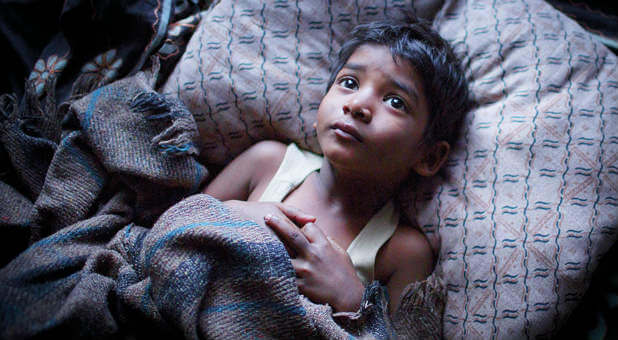I’m not ashamed to admit that I cry in movies. In fact, I’m known to cry more than my wife when a film really tugs at the heartstrings. I’ve watched Lion three times now (once when it came to theaters and twice since it was released for purchase a few weeks ago), and I’ve cried every time.
You need to see this movie. While it has mainstream actors and a Hollywood budget—and it was nominated for six Oscars—it offers a powerful Christian message without even trying to be Christian.
Based on a true story, Lion begins in 1986, when a 5-year-old Indian boy, Saroo, ends up on a train that takes him 1,500 miles to Calcutta. Separated from his older brother, Saroo desperately tries to survive as a street child. He scrounges for food, sleeps on a piece of cardboard in a train station and is almost abducted. He ends up living in a crude orphanage and is then adopted by a caring Australian couple.
The film then fast-forwards 20 years, and Saroo (played as an adult by Dev Patel) begins to remember bits and pieces of his traumatic childhood. With the help of college classmates, his girlfriend Lucy (Rooney Mara) and Google Earth technology, he figures out where he lived when he got lost.
When Saroo returns to India to look for his mother, the drama intensifies. I won’t tell you the ending, but you will need some Kleenex—especially when director Garth Davis reminds us in the closing credits that more than 80,000 Indian children go missing every year and that 11 million children live on the streets in that country. You will then realize that Saroo was fortunate; most kids in his situation don’t end up in nice homes in Australia.
Lion is a powerful film partly because it shines a harsh light on the cruel reality of poverty and child exploitation. But it is also powerful because it explores the beauty of adoption. Saroo’s adoptive mother, Sue Brierly (Nicole Kidman), tells him she knew when she was a young girl that she would adopt a child from another culture.
One of the most moving moments in the film occurs when Saroo tells Sue he’s sorry she and her husband, John, couldn’t have their own kids. She gently scolds him for thinking that he was some kind of second-class substitute for a biological child. “We chose not to have kids,” Sue says, explaining that she and John adopted Saroo and another Indian boy, Mantosh, because there were already so many children in the world who needed parents.
“We wanted the two of you,” Sue says. “That’s what we wanted. We wanted the two of you in our lives. That’s what we chose.”
There are Christian movies today that aim to reach secular audiences. (The Case for Christ, for example, is in theatres now.) But there are also mainstream films that Christians need to see. Lion is in that category. Christians need to see it because we still don’t fully embrace the importance of adoption—and in some cases adoption is viewed negatively in the church.
I know many Christian couples who are praying about starting a family—yet when I suggest they look at the possibility of adoption, my idea sometimes gets a cold reception. We often have the mindset that a biological child is the better choice, and that adoption is either a painful alternative or a last resort. Or, because adoption can be expensive, some people automatically rule it out before asking God to provide the funds.
We forgot that God chose to adopt each of us (see Rom. 8:15), and that the decision to adopt a child—especially one from a culture different from our own—is one of the most loving and generous acts any human could perform.
While Lion is a masterful film with beautiful cinematography, first-class acting and a moving score, it is at its heart a film about parental love: The love of a poor Indian mother who lost her little boy, and the love of an Australian mother and father who were willing to bring two Indian boys into their world, all the while knowing that adoption comes with great risks.
My prayer is that Lion will convince many Christian couples to open their hearts to adoption so that more children like Saroo can find loving homes.
Lion was released on DVD on March 28. It is rated PG-13 for some mild sensuality, and is too intense for young children. {eoa}































































